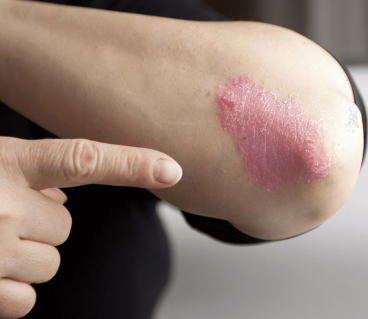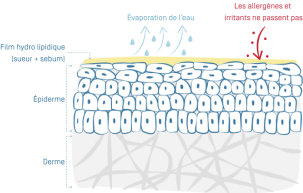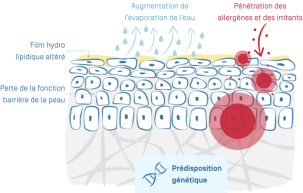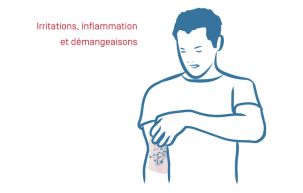How to relieve itching caused by plaque psoriasis?

Plaque psoriasis is a chronic, inflammatory skin disease which develops in the form of flare-ups. It is characterized by the regular appearance of red and scaly plaques. Two mechanisms are involved: skin inflammation, responsible for the red plaques, and accelerated skin renewal, responsible for the appearance of scales. Itching is often associated with these plaques and can have a significant impact on daily activities. Some simple tricks can help you live better with your psoriasis.
5 simple daily rituals
Comply
with your medical prescription
Why?
Treating psoriasis is the best way to reduce itching
How?
Take medical treatment(s) as recommended by your doctor.
Set alarms or reminders so that you don’t forget.Moisturize
the skin
Why?
To soothe itching and limit plaque recurrence
How?
Apply a moisturizer all over the body after each shower or bath, or after each time you wash your hands.
Remove unabsorbed excess with a cotton ball or tissue.Avoid
scratching
Why?
Scratching can make the itching worse and promote the development of plaques
How?
- Apply a moisturizer or cold compress to itchy areas (cold pack, refrigerated thermal spring water, etc.)
- Keep your hands and mind busy so you don’t have to think about it
Reduce
the time you spend in the shower or bath and avoid using very hot water
Why?
Staying in the shower or bath too long, in water that’s too hot, can dry out the skin and make itching worse
How?
- Use products suited for atopic skins, without soap
- Use lukewarm water (27 to 30°C)
Wear
light, comfortable clothing
Why?
Tight-fitting synthetic or woolen clothing tends to irritate the skin
How?
Wear loose-fitting, cotton clothing
Routine
Doctor's stamp
Want to read on?
This access is reserved for professionals, registered on Pierre Fabre For Med.
To access the full content, please register or log in if you already have an account.


